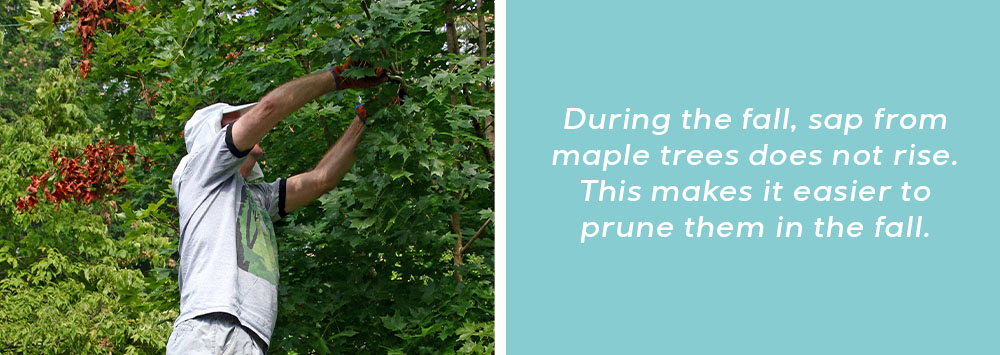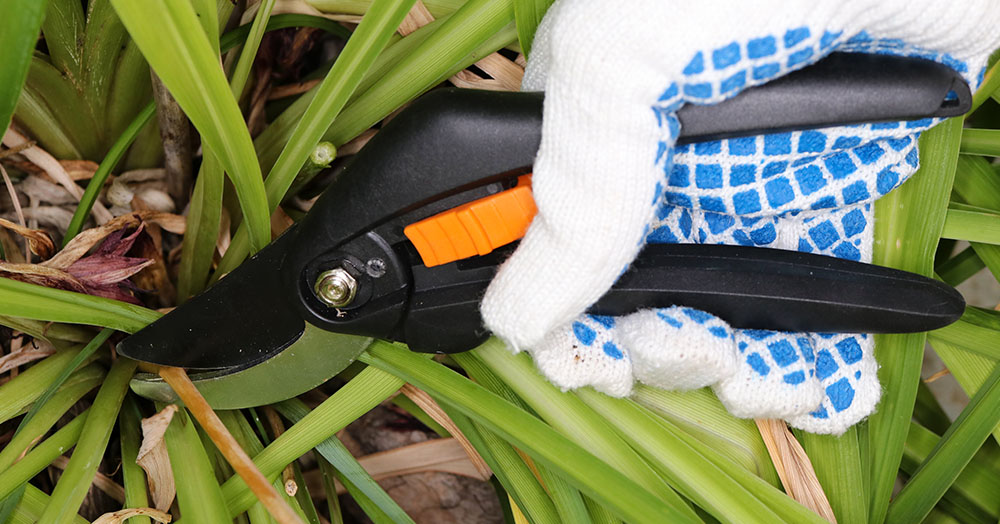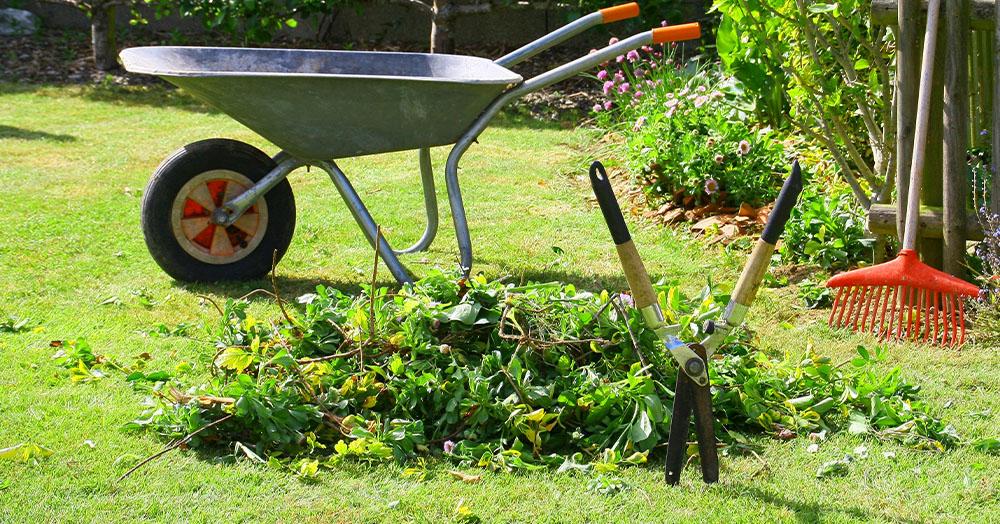To Prune, or Not to Prune
Trimming shrubs at the end of summer can be beneficial, especially if branches are damaged or diseased, but what shrubs need pruning, and which ones are better left untouched? We’ll answer all of that for you in this blog!
Why Do Plants Need Pruning?
Pruning is essential for the healthy growth of many plants, especially trees, shrubs, and perennials. Pruning makes room for new, healthy growth and removes any diseased, fungus-ridden, or decayed sections, preventing the decay from spreading to healthier branches. Of course, you can also prune for aesthetics!
What to Prune in the Fall
Trees and shrubs benefit from pruning because they allow more sunlight to filter through—a vital aspect for their survival. Therefore, it is essential to remove the dead or dying branches first by cutting between them and the main body. Here are some varieties that benefit from pruning in the fall:
Birch
Birch trees don’t require frequent pruning; they may bleed badly afterward. Consequently, we recommend pruning birch trees in the late fall, as they will have enough time to heal successfully before overwintering.

Maple
Pruning maple trees in spring or summer can cause heavy bleeding. During the fall, sap does not rise, which makes it easier to prune trees in the fall.
Cherry
While most fruit trees are dormant from December to March, we recommend waiting to prune your cherry trees in the spring after they’ve started to grow or in the late summer. Pruning during the dormant season makes cherry trees vulnerable to disease!
Wisteria
Pruning this variety in the spring may result in sap bleeding. For this reason, you can either reserve pruning until the early summer or fall.

Flowers
You can prune flowers for a few reasons: to control their size and shape, to enhance their spring blooms for the next season, and to get rid of dead or diseased parts. Here’s a list of flowers and flowering shrubs and plants that you should prune in the fall:
- Bellflowers
- Hostas
- Catmints
- Bee Balms
- Bearded Iris
- Coneflowers
- Daylilies
- Peonies
- Yarrow
- Salvia
- Astilbe
What Not to Prune in the Fall
In your garden, not all plants require pruning in the fall—some are better left untouched or pruned in spring or summer. The following perennials should be left alone through the winter and pruned in the spring:
Annual Wildflowers
Sunflowers, cosmos, zinnias, and other wildflowers don’t need pruning in the fall. When they are left up all winter, the seeds will drop, and they will be able to come back the following year.
Ornamental Grasses
Ornamental grasses like feather reed, fountain grass, switchgrass, and cord grass should not be pruned—only trimmed clean in the spring. There is no harm in leaving them during the winter since they add to the beauty of the season.

Lilacs
Spring is the best time to prune lilacs after they’ve finished flowering so that you don’t clip off any buds for next season’s flowers!
Crab Apple Trees
Like pear trees, you should not prune crab apple trees until the end of the winter. That said, you can prune plant’s suckers, or the little shoots of a crab apple tree, whenever you desire.
Magnolia
Some magnolia varieties, such as saucer magnolias, do not heal from pruning as well as others. Take caution when cutting them back after they finish flowering during the spring, and do not prune in the fall.
Viburnum
We do not recommend pruning viburnum during the fall as they flower on old wood; this means that pruning too late in the season, aka in the fall, will result in the loss of the flowers for the following year. Reserve pruning until early spring.
Are you wondering if you should prune a plant that isn’t included on this list—or leave it until spring for pruning in British Columbia? Simply call us or pay us a visit at Mother Nature Garden Centre in Powell River for advice from our gardening experts!

